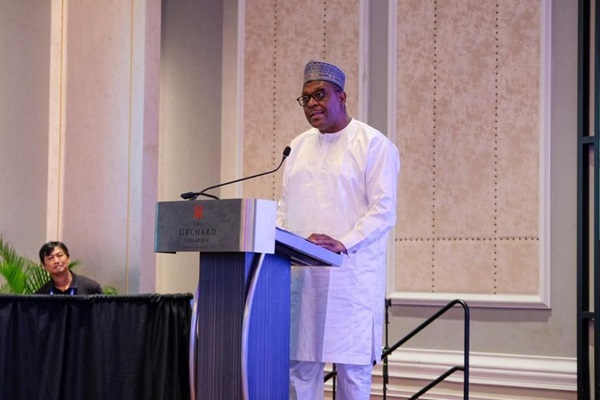
The 65th National Council on Health (NCH) concluded with the launch of critical policies and resolutions aimed at addressing Nigeria’s healthcare challenges and advancing Universal Health Coverage (UHC).
Presided over by the Minister for Health, Prof. Muhammad Pate the council convened over the weekend in Maiduguri, Borno State, bringing together key stakeholders, policymakers and global experts to chart a progressive path for Nigeria’s health sector.
To tackle pressing issues such as workforce shortages, nutrition, and maternal and child health, the council launched several key policies, including:
– National Policy on Health Workforce Migration 2024: Aimed at curbing brain-drain and retaining skilled health professionals.
– Nigeria Health Workforce Profile 2022: A data-driven tool to enhance workforce planning and policy formulation.
– National Social and Behaviour Change Strategy for Nutrition: Focused on promoting healthy dietary habits and reducing malnutrition.
– RMNCAEH+N Strategy & Implementation Guide: Targeting improved reproductive, maternal and adolescent health outcomes.
The NCH also featured presentations from global health leaders, including Dr. Pascal Mdoe from Tanzania, who shared Tanzania’s success with the Safer Births Bundle of Care, a framework Nigeria aims to adapt. Prof. Lutz Mükke emphasised the importance of empowering Nigeria’s future health workforce to sustain progress.
In total, the council adopted 58 memos and resolutions, setting the stage for transformative action. Key resolutions included:
– Institutionalising reward systems to incentivise state-level healthcare achievements.
– Integrating gender-based violence (GBV) services into Primary Healthcare Centres (PHCs).
– Scaling up Rapid Epidemic Response Teams (RESMAT) nationwide for effective emergency responses.
– Establishing the National Emergency Medical Service and Ambulance System (NEMSAS) agency, with legislative advancements underway.
– Strengthening field epidemiology training to ensure sustainable disease surveillance.
Experts hailed these initiatives as a testament to Nigeria’s commitment to addressing systemic challenges and building a resilient health system. Stakeholders expressed optimism that these measures would foster better health outcomes and ensure equity in healthcare delivery.
The council announced that the 66th NCH would take place in Calabar, Cross River State, in 2025, continuing its tradition of collaboration and innovation in health policy formulation. During the closing session, Pate remarked, “This council represents our collective resolve to transform healthcare in Nigeria. Together, we are creating a healthier and more equitable future for all Nigerians.”

